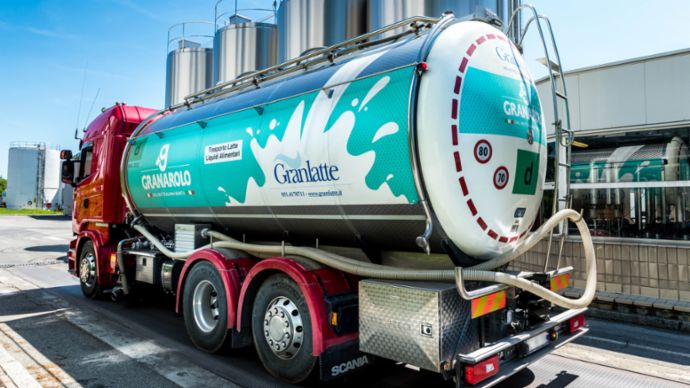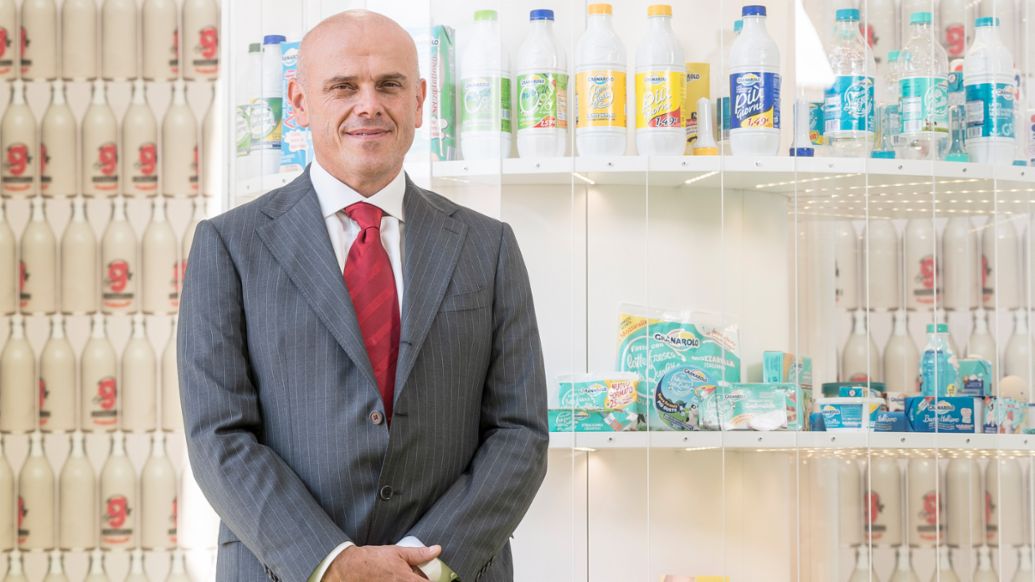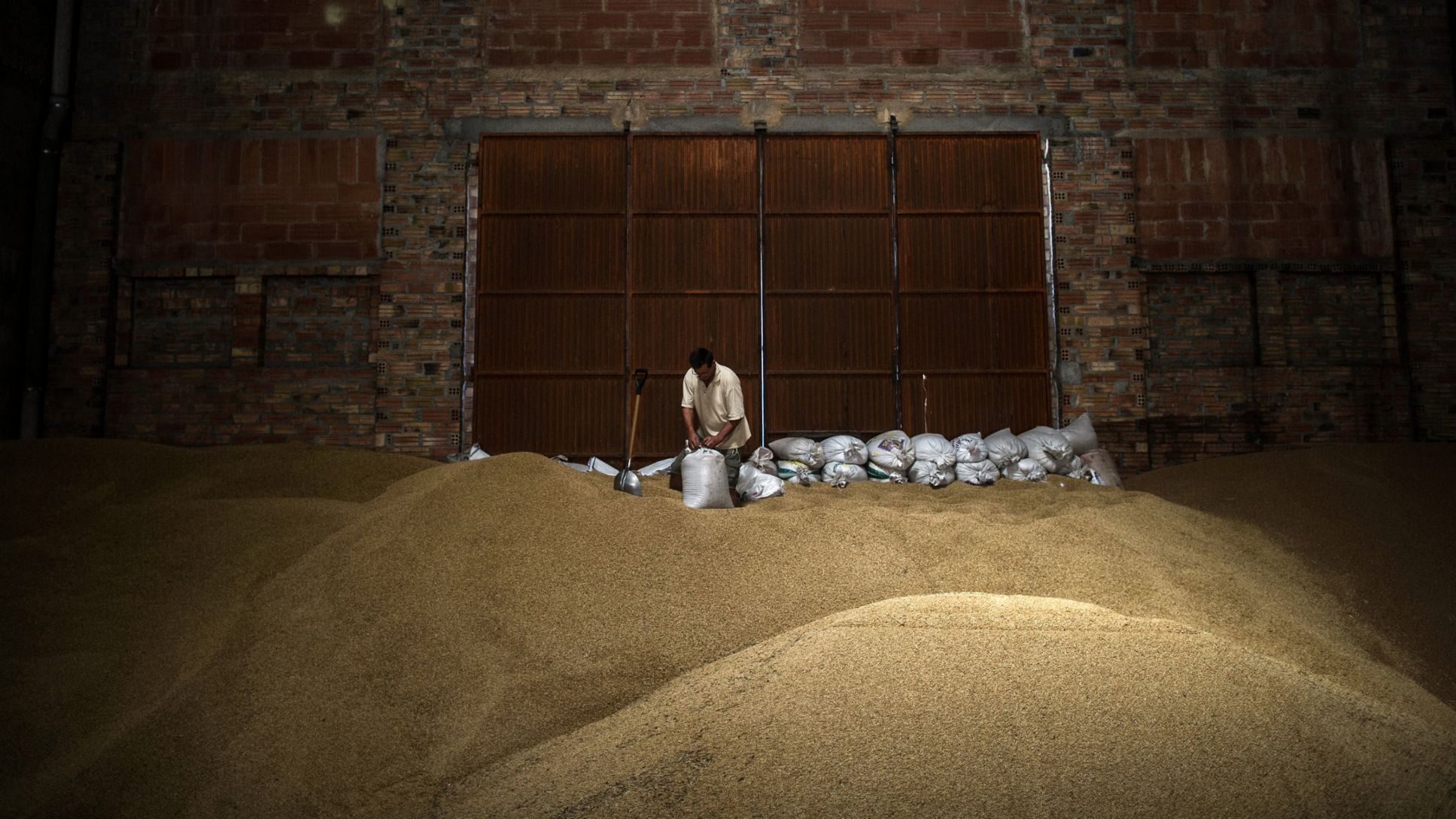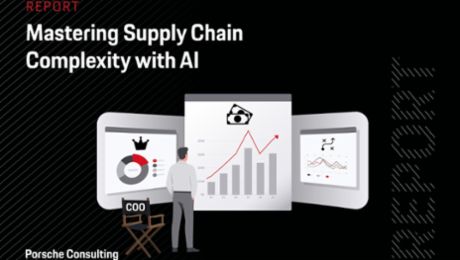Flour, oats, yeast—just a few months ago no one imagined there might be shortages of food staples such as these. But with the advent of Covid-19, a sense of uncertainty arose. As the virus broke out in different countries and governments responded with restrictions on public life, gaps began appearing on supermarket shelves.
Faced with an unknown virus, many people wanted to be certain at least of a well-stocked refrigerator and pantry. So far, so human. But the sudden rush to squirrel away staples presented food producers with unprecedented challenges. From one day to the next, some had to shift their production and others had to mobilize considerable additional capacities.
A look at the food industry reveals that its businesses employed a wide array of methods to address the crisis, or even used the weeks of lockdown to put new ideas into practice and advance changes. One factor turned out to be constant throughout the industry: in an emergency, companies were able to count above all on the loyalty of their employees and customers.
Consequences of the lockdown
But let’s start at the beginning. In the West, the leading role in the coronavirus tragedy fell to Italy because the country and its markets were the first to encounter an outbreak as sudden as it was severe. Italian businesses were therefore compelled to handle subsequent developments without the benefit of any advance warning or successful prior experience.
“Out-of-home sales to restaurants and cafeterias, for example, dropped by 90 percent.” Filippo Marchi, General Manager, Granarolo S.p.A.
One of those companies is Granarolo (2019 sales: 1.3 billion euros), a food producer that found itself in the eye of the storm right from the start because its headquarters and most of its plants are located in northern Italy, which was especially hard hit. “The lockdown imposed following the outbreak had an immediate and very strong effect on consumer behavior,” says Granarolo’s general manager Filippo Marchi on a video call from his office. Illustrating the focus of the company’s activities, a cow on a poster behind him appears to gaze over his right shoulder: Granarolo produces primarily dairy products and sells them throughout the world.
“Out-of-home sales to restaurants and cafeterias, for example, dropped by 90 percent,” he says. “Depending on the market, that accounts for 30 to 50 percent of our turnover. At the same time, demand for staples such as butter, mascarpone, and mozzarella rose steeply.” Granarolo adapted its production overnight to meet these new demands. It closed some of its production lines, and assigned additional shifts to others. These efforts have been successful, because the company’s second-quarter losses are expected to be limited to 10–14 percent (as of June 2020).

Fish sticks, vegetables—and ethanol
Philipp Hengstenberg, the president of Food Federation Germany (DLV) and head of a family-owned company based in Esslingen, watched the changes to the German market. In northern Europe, customers were especially eager to buy foods with long shelf lives. Yet many of these items were sold out for a while even though the industry had had about two weeks to prepare before the virus arrived. “But the shelves were quickly filled again,” says Hengstenberg, and follows up this observation with praise. “Given the huge challenges posed by the crisis, the industry performed well.” Hengstenberg’s own company offered precisely what customers wanted: canned sauerkraut and tomatoes and jars of pickles feature prominently in its product range. The increase in sales probably does not reflect a long-term rise in demand for these items, but rather that customers have stored them away. But while consumers were filling their larders, the company’s warehouses were emptying out. “We’ll make it to the next harvest,” says Hengstenberg, “but our stocks have never been so low at this point in time.”

Some companies managed to stand out from the field. One example would be Frosta, a frozen foods producer (2019 sales: 523 million euros) based in the northern German city of Bremerhaven, whose stock rose by 20 percent from March 20 to May 20. But the notion that Frosta could be a beneficiary of the crisis is rejected out of hand by board member Maik Busse. Instead, he says, the company’s performance during the emergency is a product of its hard work over the preceding years. “You cannot build trust in your customers and partners overnight,” he says. “We could only draw on it because we had been developing it for years beforehand.”
“At some point, we board members were almost superfluous.” Maik Busse, COO and CFO, Frosta AG
And customers did in fact buy more products from Frosta during the crisis, especially fish sticks. “That’s our highlight for the little ones,” says Busse with a smile, also on a video call. Demand for fish sticks rose by 70 percent. But sales of ready-made meals and frozen vegetables also showed a marked increase. So much so that bottlenecks arose. “We had a few major problems meeting the demand, because we source our raw goods from all over the world,” he explains. First there weren’t any mung bean sprouts from China; then there were shortages of vegetables from southern Europe; and finally, logistics in general turned out to be complicated.
Employees support their companies
For a while the availability of packaging was also an issue, because ethanol was needed to print it—and of course, it’s also used to make disinfectants. “That caught us by surprise,” admits Busse. The key to solving this problem was found in the crisis management skills of the employees. “They really did a superb job, because everyone pulled together to find solutions and any sign of a silo mentality was gone. At some point, we board members were almost superfluous.” Frosta’s employees worked together to find alternative ingredients or new suppliers to ease the bottlenecks.
Busse describes how the factory workers rose to the challenge in especially impressive ways and showed themselves to be the backbone of the company. Working with Porsche Consulting was also helpful. “At the end of 2019 we had launched some pilot projects in our factories to enhance our corporate culture. When the virus hit, we immediately expanded them, which enabled us to meet the increased demand.”
Zentis, a fruit-processing company based in the German city of Aachen (fruit preparations, jams, and confectionery; 2018 sales: 664 million euros), also reports facing challenges at the start of the pandemic. “Successful supply-chain management depends on unrestricted global transport of goods,” explains its executive manager Norbert Weichele. “In March, logistics capacities came under pressure and borders were closing down. Our raw materials come from all over the world. As a partner for both industry and trade, the challenge was to ensure a secure supply of raw goods.” Weichele notes the advantage of Zentis having its own logistics. Despite the lockdown and high degree of uncertainty, its drivers continued to work throughout Europe to ensure transport and supply.
“As a partner for both industry and trade, the challenge was to ensure a secure supply of raw goods.” Norbert Weichele, Executive Manager, Zentis GmbH & Co. KG
“The employees showed remarkable solidarity and commitment during the crisis,” says Weichele in summing up the situation. He has been with the company for about a decade, but was particularly satisfied and impressed in recent weeks. Everyone showed team spirit in rapidly adapting to the new circumstances, whether in complying with the distancing rules, putting new shift models promptly into place, or moving their offices to their homes. The digital infrastructure that Zentis had introduced about two years earlier was particularly helpful and proved its worth in the crisis. One could say that the coronavirus played a key role in advancing the digital transformation at Zentis.
Accelerated change and digitalization
Filippo Marchi also remarked on this benefit for his company in Bologna. “Thanks to the virus we’ve seen that it’s possible to work in a different way, which brings a whole series of advantages,” he says. With all the office staff suddenly working from home, it was clear that digital operations can help balance professional and private lives, and that many time-consuming meetings are not in fact necessary. In order to retain these positive effects after the emergency situation is over, Marchi has asked his managers to work with the personnel department to determine what percentage of work can be done from home in the future.

Marchi sees yet more beneficial results of the coronavirus crisis. With the support of Porsche Consulting, the company used the decline in the restaurant and cafeteria business to continue restructuring its sales. Granarolo had already carried out a pilot project with the management consultancy last year on digitalizing its supply chain (see boxed text). “The crisis gave us a chance to accelerate the rollout in the out-of-home sector as well, where modernization was overdue,” remarks Marchi. Thanks to the virus, restructuring was completed within just a few months instead of the anticipated year and a half.
As Marchi concludes, “The virus compelled us to focus on the essentials of our business.” Over recent years the product range had become increasingly subdivided and complex. But the crisis revealed which products consumers really need—and which ones they don’t. “We turned our attention back to our vital organs, so to speak, and will be streamlining our product range.”
The crisis also served as a reminder that companies consist not only of sales figures but also and especially of the people who stand behind them—the employees and customers who should be taken care of under such extraordinary circumstances. Granarolo did just that. Only three people in a workforce of 3,000 tested positive for the virus, and no one was infected at the workplace. Last but not least: “Granarolo helped ensure that its customers felt secure during this special situation, because its products were always available.”
Project with Porsche Consulting
Industry pioneer in direct sales
Granarolo’s sales operations were old-fashioned and inefficient until just a short time ago, says the general manager Filippo Marchi. “We had known for a while that we had to make changes, so we developed a pilot project with Porsche Consulting and carried it out in mid-2019.” The project focused on digitalizing the supply chain and making it more direct. In the past, many sales points—both at supermarkets and in the out-of-home sector—had been served by delivery trucks, with the drivers also providing consulting services for the products.
With the new system, orders are placed online and a specialized department can offer consulting if desired. This reflects a “key step in development,” according to Marchi, who is making Granarolo a pioneer in its industry in Italy. “We are the first business to use this system to sell fresh products,” he notes.
Info
Text first published in Porsche Consulting Magazine.





